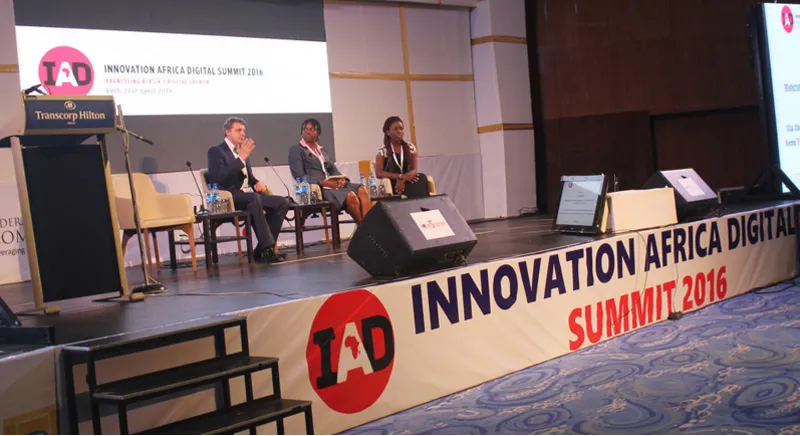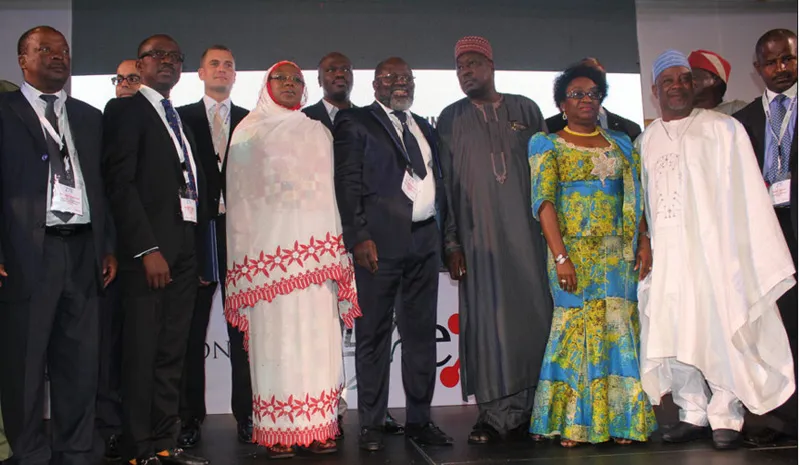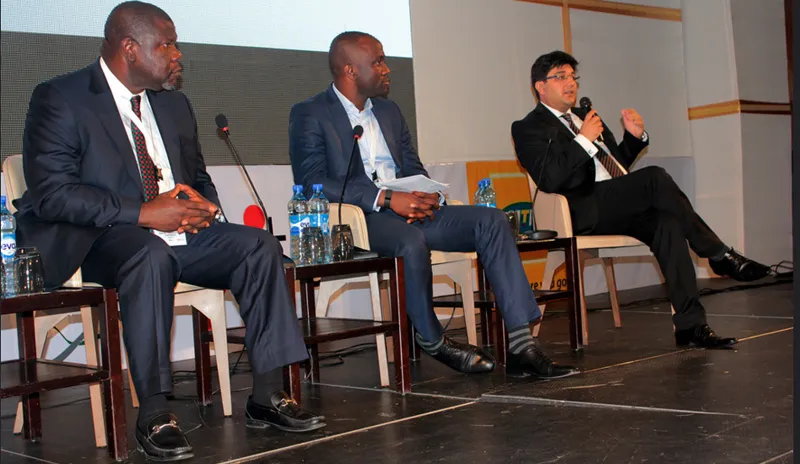m-Pesa, Ushahidi, Andela and beyond: Africa ramps up its startup movement
Some digital innovations from Africa are already making their mark around the world. Mobile payment service m-Pesa (now offered by Vodafone in Asian markets as well) and Ushahidi (crowd platform for monitoring everything from disasters to elections) are just a couple of ventures putting Africa on the global digital innovation map.

A new crop of startups from Africa was discussed at the recent 14th annual Innovation Africa Digital Summit, held in Abuja by Extensia. It was an honour and delight for me to chair the summit; see also my takeaways from the earlier summits in Gambia and Zimbabwe.
More recent African startups include Andela (developer communities), BudgIT (public budget information sharing for citizens), and SkillsMix.com (platform for outsourcing project management activities).
News media have flagged other notable African startups such as Miti Health (digital tools for pharmacies), Abacus (market research analytics), Paperight (print on demand store), BambaPOS (mobile solutions for retail), Zuvaa (fashion marketplace platform), usePulse (digital classroom platform), DealDey (coupons from local merchants), Edge Books (digital media), GoMetro (train route planner), and InsureAfrika (insurance comparison platform).
Over $185 million in funding was raised by 125 African tech startups in 2015, according to a report by Disrupt Africa. These include fintech startup WiGroup, micro-work service M4JAM and solar energy firm M-Kopa. Disrupt Africa has also published a list of 12 African startups to watch in 2016.

In terms of total number of startups as well as total amount of funds raised, the Top Three countries in Africa were South Africa, Nigeria and Kenya. Other countries to watch are Tanzania, Ghana and Egypt. Increasing ICT diffusion in Africa is expected to drive a whole range of digital startups, as well as digitally-enabled players in other sectors.
A number of social entrepreneurs and innovators are active as well in Nigeria (digital tools for blind children), Kenya (educational content for marginalised children) and Tanzania (classroom aids for school teachers).
The health sector in Africa is also ripe for transformation via ICTs and entrepreneurship, said Kasirim Nwuke, Chief, New Technologies & Innovation, United Nations Economic Commission for Africa (ECA). He cited the Biomedical Engineering Innovation & Entrepreneurship Programme as a good example in this regard.
Bulk SMS services have been used to monitor polio initiatives in Nigeria and share knowledge alerts by Public Health Services and Solutions (PHSS), eg. in areas like vaccine tracking. CSR initiatives of operators like MTN Nigeria are notable examples of inclusive digital strategies by major continental players.
National initiatives
Governments like Nigeria’s are scaling up investment in R&D, technology transfer and commercialisation initiatives, said Mohammed Jibrin, Director General of Nigeria’s National Board for Technology Innovation.
The board has classified innovation into categories such as low technology (handicrafts), medium technology (chemicals, machinery), high technologies (ICTs, bio-tech) and emerging technologies (nano, laser). Schemes proposed cover resident as well as non-resident incubation, along with support for pre-incubation and community incubation. A stronger IP culture is needed for successful commercialisation, said Jibrin.

Innovation models based on hubs and clusters will add a local flavour to African innovation, along with ties to global hubs like Silicon Valley. For example, AfriLabs connects 40 technology innovation hubs in 20 African countries, said Michael Oluwagbemi, Board Chair of Afrilabs. “Together, we can develop a strong African ecosystem for entrepreneurship, innovation and job creation,” he said.
Hybrid models will be needed to spur venture capital flows in the region, added Ezekiel Odiogo, Principal Investment Officer, African Development Bank. Large ICT firms are also stepping into the game and growing the startup ecosystem. For example, ISP MainOne is supporting investment initiatives such as the Lagos Angel Network, said Gimba Mohammed, Head of Public Sector at MainOne.
Digital Africa
According to figures cited by a number of speakers at IADS 2016, Internet penetration in Africa accounts for 167 million users, or 16 per cent of the population. The smartphone penetration is at 67 million phones, and the Internet contribution to Africa’s GDP is $18 billion.
The Top Five countries of Africa in terms of number of Internet users are Nigeria, Egypt, Morocco, Kenya and South Africa. By 2020, Africa will have 659 million unique subscribers, and mobile sector employment will account for 7.1 million jobs.
Many African countries are now poised to move from ‘emergent’ stage of digital adoption to ‘scale’ stage of rapid and widespread growth. The Economic Community of West African States (ECOWAS) sees ICT playing a major role in regional integration, but calls for harmonisation of national ICT policies. Cooperation will be needed between submarine and terrestrial network players, as well as in spectrum allocation - especially for the landlocked countries. The Africa Coast to Europe (ACE) cable initiative will soon connect 24 Africa countries, up from 18 today.

A number of Asian countries are active in the region as well. The Pan African e-Network project between India and the African Union offers online access to telemedicine and e-learning. ZTE is extending its smart city experiences from China to Africa.
The ICT sector is not without its unique brand of risk, however, which includes cybercrime, phone thefts, spam, scams, viruses and fraudulent transactions. There are also significant drags on the wheels of e-commerce and digital payment, via difficulty in obtaining domain names, UX skills, low trust in online payment systems, and resilience strategies for business continuity.
A range of showcases of national ICT advancement were presented at IADS 2016. For example, Gambia has launched a number of ICT and e-government initiatives, such as a National Data Centre to consolidate and host government services. Lesotho’s National Strategic Development Plan (2012 – 2017) recognises ICT as one of the key drivers for growth and poverty eradication, via access promotion mechanisms like the Universal Service Fund (USF) as well as technology parks.
The Cross River State in Nigeria has irrigation systems monitored by SMS and digital meters. Citizens also use the ‘MyCity Report’ app that sends alerts to government officials about service outages. Its Women in Technology initiative (Techie Women) opens doors to women and girls in the engineering and technology fields.
The Road Ahead
For Africa to map and chart the evolving digital landscape, emerging ICT trends should be systematically categorised into opportunities, threats, gaps, synergies and capabilities, advised Mark Gillon, Global Account Director at Xura.

It is key for African governments and regulators to look at industry and national roadmaps, and plan for issues such as spectrum for 5G services. Taxation on ICT components should be lowered, and the telecom sector should be seen not just as a cash cow but as a driver of GDP growth and youth aspirations.
Dependence only on sectors such as mining and oil & gas will not lead to balanced development in Africa – expanding investments into ICT and entrepreneurship seems to be a feasible additional route for developing countries to get out of the current crisis.







